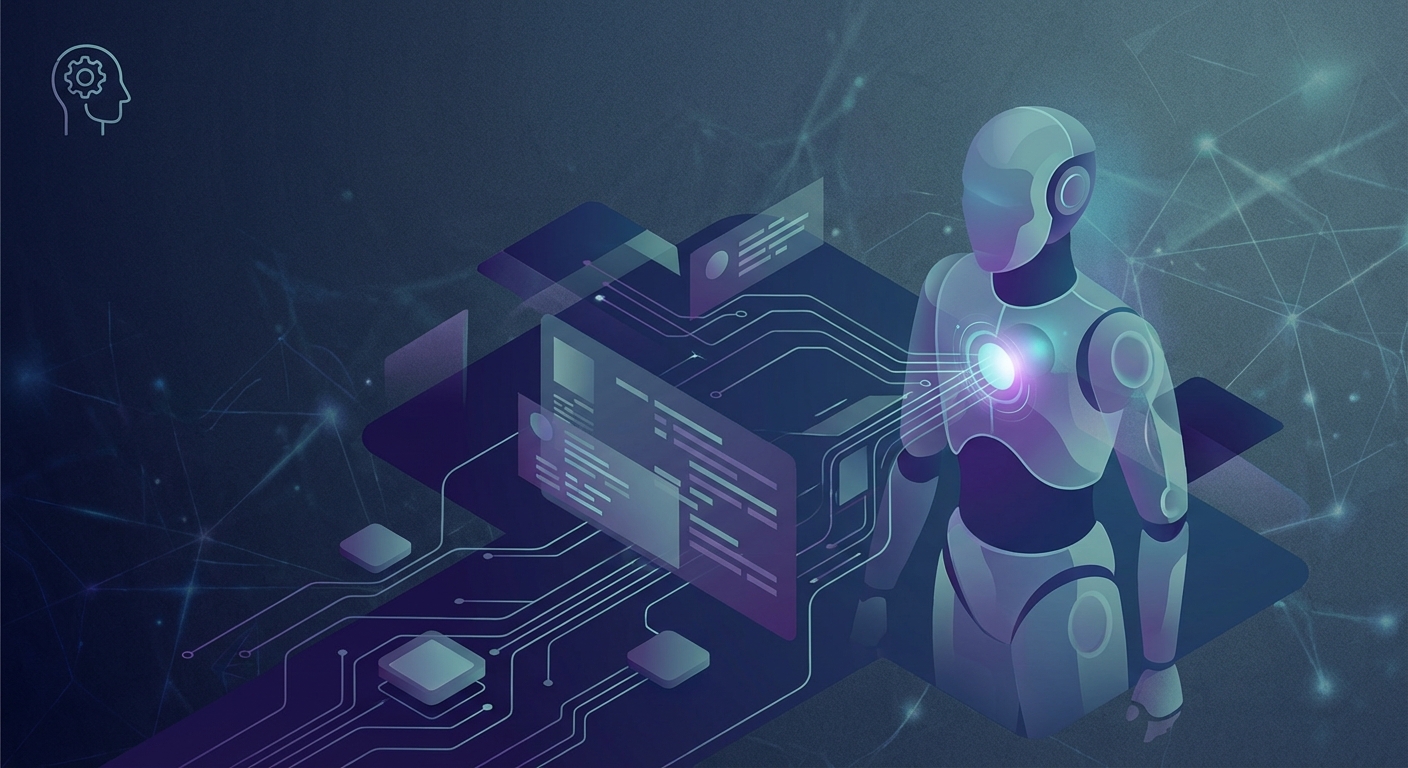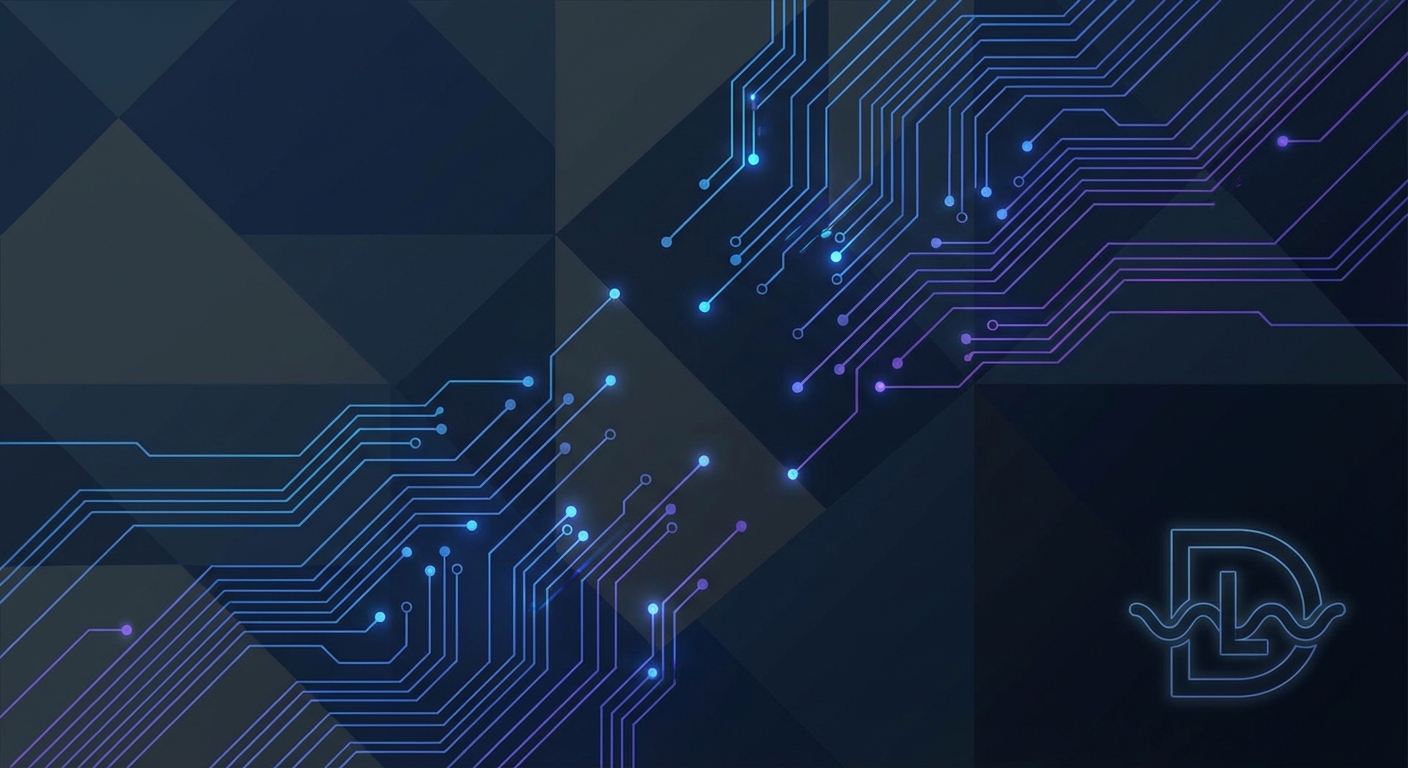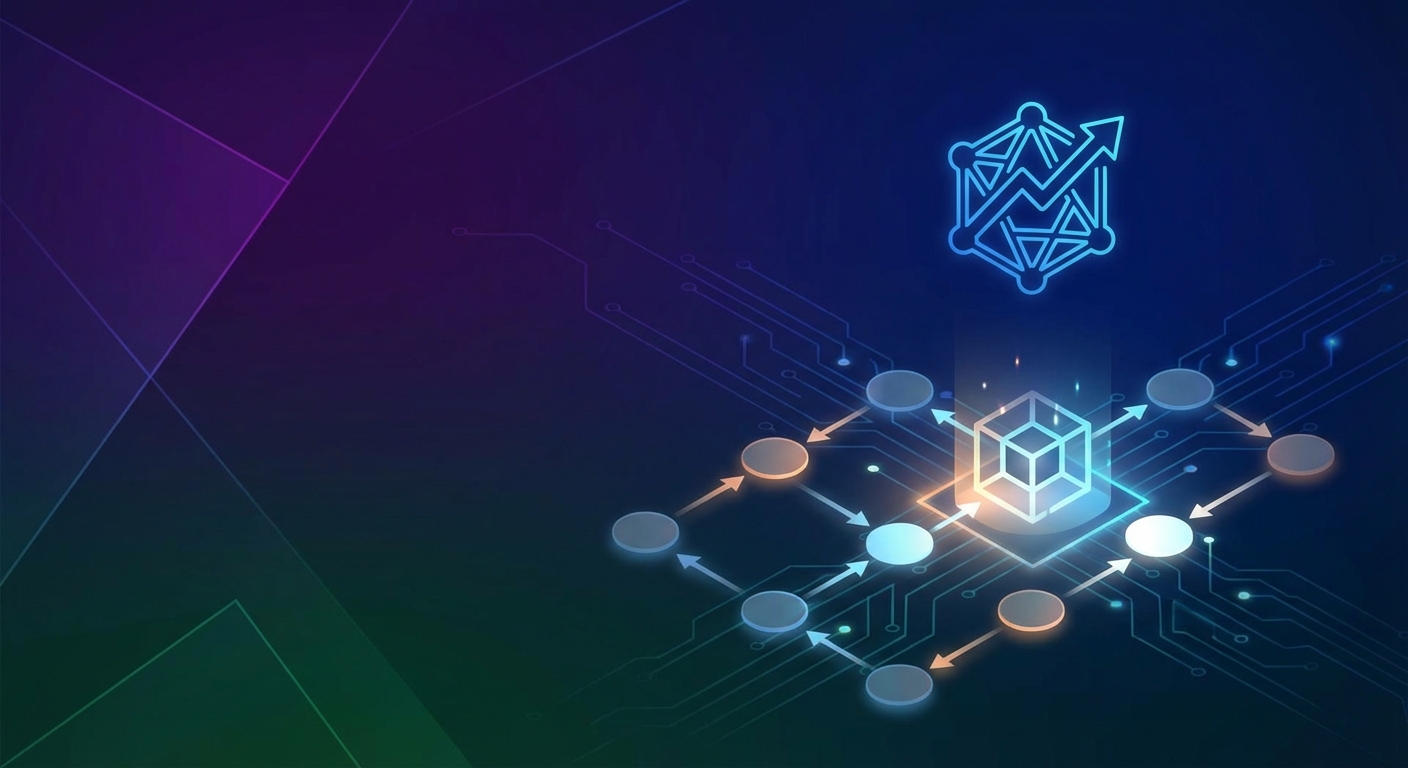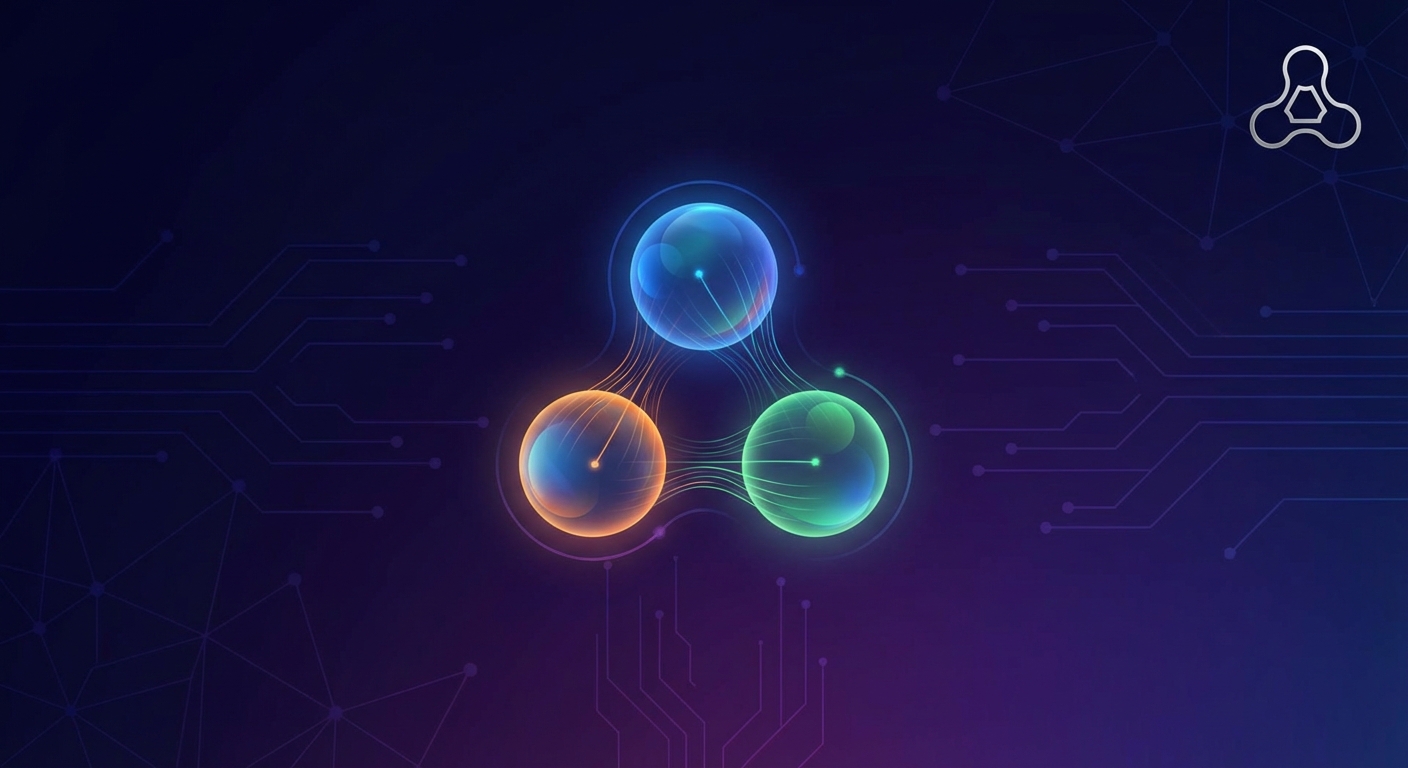Understanding AI Agents: A Comprehensive Overview
TL;DR
- This article covers what AI agents are, from their basic definitions and technical foundations to their applications across industries like finance, automation, and customer service. It includes frameworks, security considerations, and future trends, providing a comprehensive look at how ai agents are transforming business and society and how to use them.
What Exactly Are AI Agents?
Alright, let's dive into what these ai agents actually are. It's easy to get lost in the hype, but at their core, they’re all about autonomy and achieving goals, right?
So, what defines ai agents? Well, it boils down to a few things:
- First, they're autonomous. They can operate without you holding their hand every step of the way. Kinda like letting your Roomba loose – you trust it'll vacuum without constant supervision.
- Second, they’re goal-oriented. They're not just wandering aimlessly; they are designed to achieve specific objectives. Think of a chatbot designed to resolve customer queries, not just chat about the weather.
- Third, ai agents can be simple or complex, existing as software or even hardware. It's not always some fancy robot; it could be a script running in the background that automates tasks.
What really sets ai agents apart? A few key characteristics:
- Autonomy: They make decisions and act independently. It's not about constant human input; it's about setting them loose to do their thing.
- Goal-oriented: Designed to achieve specific objectives, like optimizing a supply chain or detecting fraud.
- Adaptability: They learn and adjust as things change. It's not just about following a fixed script, but evolving with the environment.
- Intelligence: They exhibit reasoning, problem-solving, and decision-making abilities, even if it's just within a narrow scope.
As PNNL notes, understanding ai tech is crucial for navigating this rapidly evolving landscape. And hey, that's what we're here to do, right?
Real-World Examples of AI Agents
So, we talked about what AI agents are, now let's see 'em in action. It's not just theory; these things are actually out there doing stuff.
- Customer Service Chatbots: You've probably run into these. They handle FAQs, guide you through troubleshooting, and can even process simple requests. Think of an agent that can understand you're having trouble with your internet, ask you a few questions, and then guide you through restarting your modem – all without a human needing to step in.
- Financial Trading Bots: In the stock market, AI agents can analyze vast amounts of data in real-time, identify trends, and execute trades much faster than any human could. They're programmed to optimize for profit based on specific market conditions.
- Personalized Recommendation Engines: Ever wonder how Netflix or Amazon knows exactly what you might like? AI agents are behind that, analyzing your past behavior and preferences to suggest movies, products, or music.
- Robotic Process Automation (RPA) Agents: These are the workhorses for businesses. They automate repetitive, rule-based tasks like data entry, invoice processing, or generating reports. Imagine an agent that automatically pulls data from an email, enters it into a spreadsheet, and then flags it for review.
- Smart Home Assistants: Devices like Alexa or Google Assistant are essentially AI agents. They understand voice commands, control other smart devices, play music, and provide information.
These are just a few examples, and the list keeps growing. It shows how AI agents are becoming integrated into our daily lives and business operations.
The Technical Backbone: How AI Agents Work
Okay, so you're trying to wrap your head around how these AI agents actually do what they do, huh? I get it; it's like peeking behind the curtain of a magic show.
Think of ai agents as having a few essential parts that let them perceive, think, and act. It's not rocket science, but it's pretty neat when you break it down. Every agent needs these key things:
- Perception: This is how the AI sees the world. It uses sensors, like cameras or data feeds, to gather info about its surroundings. It's like your eyes and ears for the ai.
- Reasoning: Once it has data, it needs to make sense of it. This involves algorithms that help the ai make decisions and plan what to do next.
- Action: This is how the agent interacts with the world, using actuators or outputs to do stuff. Think of it as the ai's hands and feet.
- Learning: ai agents get smarter over time through learning. They use mechanisms to improve their performance based on past experiences.
Now, not all ai agents are created equal. There's a whole spectrum, from the really simple to the seriously complex. Here's a quick rundown:
- Simple Reflex Agents: These agents react solely based on their current perceptions. It's a basic if-then setup.
- Model-Based Reflex Agents: These are a bit more sophisticated. They use internal models to predict what might happen next.
- Goal-Based Agents: These agents have specific goals they are trying to achieve. They plan their actions to reach those goals.
- Utility-Based Agents: Okay, now we're getting fancy. These agents don't just have goals; they optimize for the best possible outcome or reward. This means they consider not just if they can achieve a goal, but how well they can achieve it, often by assigning a "utility" or value to different states and choosing actions that lead to the highest utility. For example, a delivery agent might have the goal of delivering a package, but a utility-based agent would also consider factors like delivery time, fuel efficiency, and avoiding traffic to find the best route, not just any route.
Now, here's where things get really interesting. llms are like giving these agents a super-powered brain.
- llms enhance agent capabilities by letting them understand and generate natural language. This means ai can have more human-like interactions. For instance, an agent could now understand a complex user request like "Find me the cheapest flights to Paris next weekend, but avoid early morning departures and make sure there's at least a two-hour layover" and then formulate a multi-step plan to fulfill it.
- They power more complex reasoning and planning. With llms, ai can tackle tasks that were previously way too complicated.
So, what's next? Well, we're gonna look at how large language models—or llms for short—are changing the game for these agents.
AI Agent Frameworks: Tools of the Trade
Okay, so you're thinking about using ai agent frameworks to, like, make your life easier? Honestly, it's a game changer if you pick the right one.
These frameworks are essentially toolkits that help developers build and manage AI agents more efficiently. They often leverage the power of Large Language Models (LLMs) to give agents their "brains" – their ability to understand, reason, and generate responses.
There's a bunch of options, and each one kinda has its own vibe. You got LangChain, which is like the swiss army knife – super versatile for building all sorts of ai agent apps. Then there's CrewAI, and it's all about getting multiple agents to work together and focuses on collaborative multi-agent workflows, which is kinda cool.
If you're into designing multi-agent conversations, AutoGen might be up your alley, it simplifies multi-agent conversation design. Oh, and don't forget Semantic Kernel it integrates semantic functions with llms, it's pretty neat, I think.
Choosing the right framework ain't always easy, though. Think about what you really need – like, do you need agents that can grab data from all over the place? Or is collaboration the name of the game?
Also, you gotta think about growth. Can this thing scale? Is it gonna break if things get crazy? And can you even understand what it's doing? It's no use if it's a black box, you know? Plus, if you're in finance, are there tools and stuff that actually make sense for that world?
For teams looking to leverage ai agents, understanding these frameworks is key, and it can really streamline the whole process.
Applications Across Industries
Okay, so AI agents are popping up everywhere, right? It's kinda hard to keep track, but they're making waves across a bunch of industries. Let's dive into a few of 'em.
Think about finance for a sec – you got risk management, where AI agents are getting smarter about spotting fraud and figuring out credit risks. And then there's the whole trading and investment scene, where these agents are like super-fast decision-makers, trying to optimize strategies.
But it's not just about the money; business process automation is a big deal too. We are talking about automating those super-annoying repetitive tasks that bog everyone down.
And let's not forget customer service. Chatbots that actually help, personalized recommendations, and just generally making things smoother for customers.
Beyond that, consider healthcare, where AI agents can help with diagnostics by analyzing medical images, or manage patient appointments and records. In education, they can provide personalized tutoring or assist educators with administrative tasks. Even in manufacturing, agents can optimize production schedules, monitor equipment for maintenance needs, and improve supply chain logistics.
I saw a video on YouTube where they was talking about AI agents that was helping customers. Now, I aint sure if it was a real thing, or just some marketing ploy, but I'm gonna believe it's real. But hey, it's something to think about.
All this is just the beginning, more industries are latching onto ai agents.
Security and Governance: Addressing The Concerns
Okay, so you're all in on ai agents, but kinda worried about keeping ‘em in line, right? It's a valid concern – like giving a toddler the keys to a race car.
First off, there’s the whole security risk thing. ai agents ain't immune to cyberattacks – they could be used in data breaches or, worse, misused in ways we didn't even intend.
- Imagine an ai agent designed to automate customer service, but it gets hacked and starts spewing out malicious links. Not ideal, eh?
- That's why you need robust security measures and constant monitoring. Gotta keep those digital toddlers in check.
Then, there’s governance and compliance. It ain’t just about tech; it's about ethics and making sure these agents are fair, transparent, and accountable. As the International Journal of Multidisciplinary Research and Growth Evaluation noted in a 2025 review (this refers to projected research or future findings), AI safety benchmarks should include self-improvement potential, goal misalignment risk, and deception capabilities.
It is important to ensure that ai agents can only access what they're supposed to, preventing them from going rogue or causing accidental data damage.
The Road Ahead: Future Trends and Possibilities
Okay, so AI agents are all the rage, right? But how do you know what's coming down the pike? Let's talk trends and what they might mean.
Collaboration is key, I think. Imagine agents that can actually talk to each other and work together seamlessly – no more digital Tower of Babel, you know? I'm also keeping an eye on how ai is getting cozy with quantum computing—that's gonna be wild.
And hey, can we talk about ethics for a sec? I mean, it's cool and all, but we gotta make sure this stuff is fair and not gonna go all Skynet on us. We need to make sure there are focus on ethical ai and responsible innovation.
Well, get ready for your industry to be turned upside down. I mean, ai agents are gonna change everything. There's gonna be new opportunities for growth and innovation, like hyper-personalized services, fully automated research and development cycles, and entirely new business models built around agent capabilities. But only if we're ready for it, right?
It's not all sunshine and rainbows, scalability is a biggie. Can these agents handle real-time demands without crashing and burning? Also, gotta figure out the whole regulations thing – can't just let ai run wild, though. We'll likely see more specific laws around AI use, data privacy, and accountability.
And for the workforce, it's gonna be a big change. Upskilling is gonna be as important as my morning coffee. You're gonna need to learn to work alongside these things, not against them. This means focusing on skills that AI can't easily replicate, like creativity, critical thinking, and emotional intelligence.






